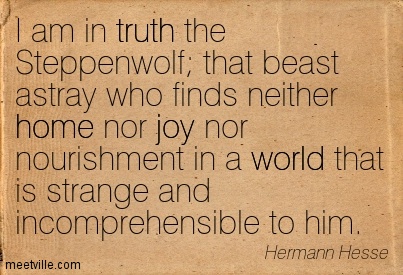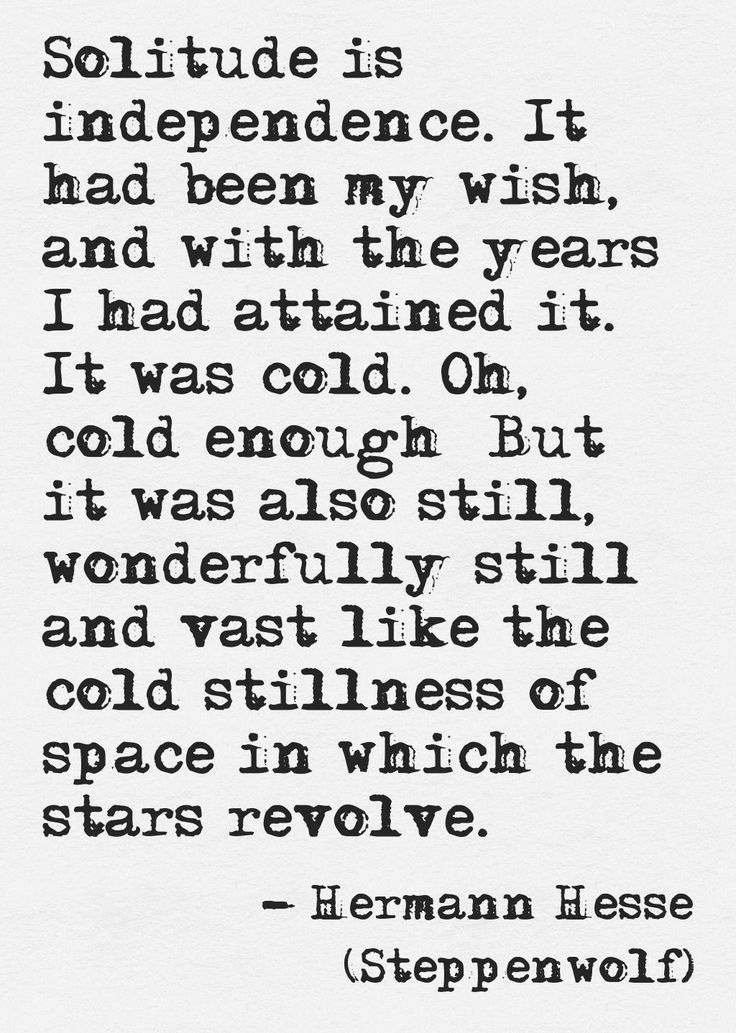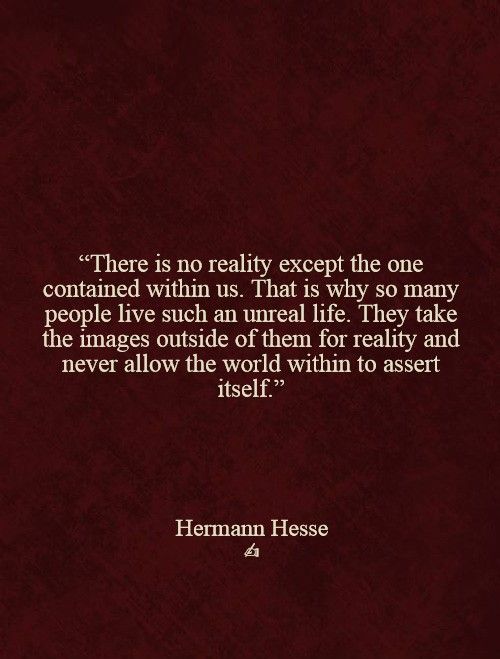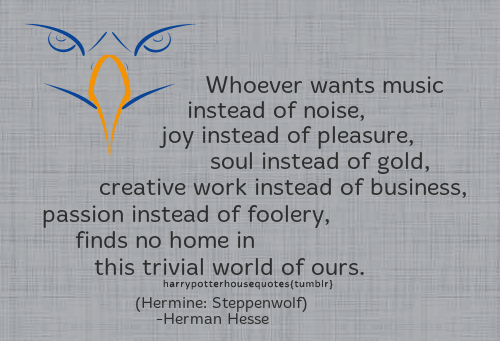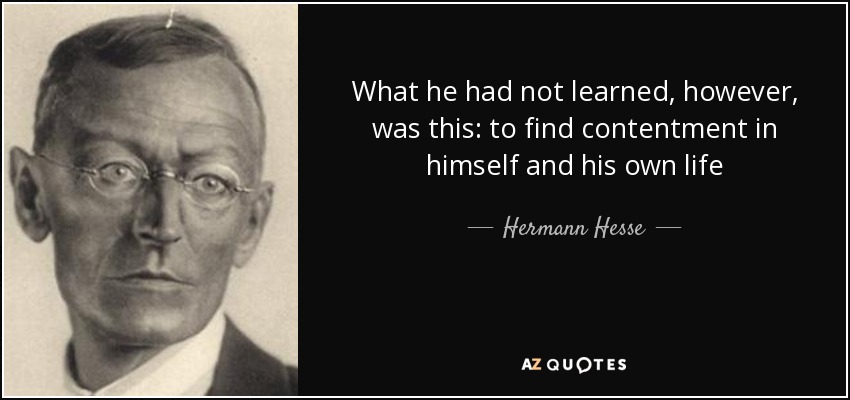It looks like you're using an Ad Blocker.
Please white-list or disable AboveTopSecret.com in your ad-blocking tool.
Thank you.
Some features of ATS will be disabled while you continue to use an ad-blocker.
share:
Check out how Hermann Hesse's books relate to this thread's entire premise:
Demian
Bildungsroman is "a literary genre that focuses on the psychological and moral growth of the protagonist from youth to adulthood (coming of age), in which character change is extremely important."
Here Hesse masterfully explains that the world you see with your eyes, the world of illusion - maya, becomes a shell that you molt out of via metamorphosis as you begin to realize who you truly are Spiritually.
Hesse also wrote Siddhartha
Ok so what's the themes in this?
It's about everything I'm personally grappling with in my own life, it's about the themes manifesting in my writing and my own personal quest to figure out why the hell I'm alive and who the hell I am. There is a synergy here as it relates to the general concepts of existentialism and the crisis of self-realization in whatever life you wound up experiencing.
So in this weird way Hesse wrote this as his own personal therapy so he might face his own personal struggle in his life. That's sorta why I write stuff like this thread too.
Demian
Demian: The Story of Emil Sinclair's Youth is a Bildungsroman by Hermann Hesse, first published in 1919; a prologue was added in 1960.
Bildungsroman is "a literary genre that focuses on the psychological and moral growth of the protagonist from youth to adulthood (coming of age), in which character change is extremely important."
Emil Sinclair is a young boy raised in a middle class home, amidst what is described as a Scheinwelt, a play on words which means "world of light" as well as "world of illusion". Emil's entire existence can be summarized as a struggle between these two worlds: the show world of illusion (related to the Hindu concept of maya) and the real world, the world of spiritual truth. In the course of the novel, accompanied and prompted by his mysterious classmate 'Max Demian', he detaches from and revolts against the superficial ideals of the world of appearances and eventually awakens into a realization of self.
Here Hesse masterfully explains that the world you see with your eyes, the world of illusion - maya, becomes a shell that you molt out of via metamorphosis as you begin to realize who you truly are Spiritually.
Hesse also wrote Siddhartha
Siddhartha is a novel by Hermann Hesse that deals with the spiritual journey of self-discovery of a man named Siddhartha during the time of the Gautama Buddha.
The word Siddhartha is made up of two words in Sanskrit language, siddha (achieved) + artha (what was searched for), which together means "he who has found meaning (of existence)" or "he who has attained his goals".[2] In fact, the Buddha's own name, before his renunciation, was Siddhartha Gautama, Prince of Kapilavastu. In this book, the Buddha is referred to as "Gotama".
Ok so what's the themes in this?
In Hesse’s novel, experience, the totality of conscious events of a human life, is shown as the best way to approach understanding of reality and attain enlightenment—Hesse’s crafting of Siddhartha’s journey shows that understanding is attained not through intellectual methods, nor through immersing oneself in the carnal pleasures of the world and the accompanying pain of samsara. It is the completeness of these experiences that allows Siddhartha to attain understanding.
Thus, the individual events are meaningless when considered by themselves—Siddhartha’s stay with the Shramanas and his immersion in the worlds of love and business do not lead to nirvana, yet they cannot be considered distractions, for every action and event gives Siddhartha experience, which leads to understanding.
It's about everything I'm personally grappling with in my own life, it's about the themes manifesting in my writing and my own personal quest to figure out why the hell I'm alive and who the hell I am. There is a synergy here as it relates to the general concepts of existentialism and the crisis of self-realization in whatever life you wound up experiencing.
A major preoccupation of Hesse in writing Siddhartha was to cure his "sickness with life" (Lebenskrankheit) by immersing himself in Indian philosophy such as that expounded in the Upanishads and the Bhagavad Gita.[4] The reason the second half of the book took so long to write was that Hesse "had not experienced that transcendental state of unity to which Siddhartha aspires. In an attempt to do so, Hesse lived as a virtual semi-recluse and became totally immersed in the sacred teachings of both Hindu and Buddhist scriptures. His intention was to attain to that 'completeness' which, in the novel, is the Buddha's badge of distinction."
So in this weird way Hesse wrote this as his own personal therapy so he might face his own personal struggle in his life. That's sorta why I write stuff like this thread too.
Freedman also points out how Siddhartha described Hesse's interior dialectic: "All of the contrasting poles of his life were sharply etched: the restless departures and the search for stillness at home; the diversity of experience and the harmony of a unifying spirit; the security of religious dogma and the anxiety of freedom."[8] Eberhard Ostermann has shown how Hesse, while mixing the religious genre of the legend with that of the modern novel, seeks to reconcile with the double-edged effects of modernization such as individualization, pluralism or self-disciplining.
Ok so this brings me to this link about the Caledonian Antisyzygy
Also we have Apolloonian and Dionysian
So it is about the play of opposing natures within each of us. Our calm and rational side versus our wild and irrational side. I absolutely love allowing these polarities to express themselves within my life. Yes, I DO get in a lot of trouble sometimes, as silly as it sounds. If you knew me in real life you'd get it lol.
Two other examples of this schemata in literature and philosophy are:
The Strange Case of Dr. Jekyll and Mr. Hyde
and The Private Memoirs and Confessions of a Justified Sinner
The term Caledonian Antisyzygy refers to the "idea of dueling polarities within one entity"
Also we have Apolloonian and Dionysian
The Apollonian and Dionysian is a philosophical and literary concept, or dichotomy, based on certain features of ancient Greek mythology. Many Western philosophical and literary figures have invoked this dichotomy in critical and creative works. In Greek mythology, Apollo and Dionysus are both sons of Zeus. Apollo is the god of the sun, of rational thinking and order, and appeals to logic, prudence and purity. On the other hand, Dionysus is the god of wine and dance, of irrationality and chaos, and appeals to emotions and instincts.
So it is about the play of opposing natures within each of us. Our calm and rational side versus our wild and irrational side. I absolutely love allowing these polarities to express themselves within my life. Yes, I DO get in a lot of trouble sometimes, as silly as it sounds. If you knew me in real life you'd get it lol.
Two other examples of this schemata in literature and philosophy are:
The Strange Case of Dr. Jekyll and Mr. Hyde
and The Private Memoirs and Confessions of a Justified Sinner
Now back to Goethe so we can start tying all this in, first I'd like to link a quote from his famous work
Hermann and Dorothea
The setting is a rich son seeking to marry a maid, and his father rejecting the proposal because of her lowly status. And this is what his mother says to her husband about his horrible response to their son:
"Why will you always, father, do our son such injustice? That least of all is the way to bring your wish to fulfillment. We have no power to fashion our children as it suits our will; As they are given by God, so we must have them and love them; teach them as best we can, and let each of them follow his nature. One will have talents of one sort, and different talents another. Every one uses his own; in his own individual fashion, each must be happy and good."
And this message I think can really resonate with each and everyone's lives, including my own. We are all so different and what really is important in life is following your Heart and seeking Love as you see fit. Win or lose, it's always worth a shot.
This brings us to one of Goethe's most famous and praised works - Wilhelm Meister's Apprenticeship
Not only did this great novel inspire many others after it, including shaping the philosophical outlook of many whom read it, it even inspired Beethoven and Schubert.
The setting is a rich son seeking to marry a maid, and his father rejecting the proposal because of her lowly status. And this is what his mother says to her husband about his horrible response to their son:
"Why will you always, father, do our son such injustice? That least of all is the way to bring your wish to fulfillment. We have no power to fashion our children as it suits our will; As they are given by God, so we must have them and love them; teach them as best we can, and let each of them follow his nature. One will have talents of one sort, and different talents another. Every one uses his own; in his own individual fashion, each must be happy and good."
And this message I think can really resonate with each and everyone's lives, including my own. We are all so different and what really is important in life is following your Heart and seeking Love as you see fit. Win or lose, it's always worth a shot.
This brings us to one of Goethe's most famous and praised works - Wilhelm Meister's Apprenticeship
The eponymous hero undergoes a journey of self-realization. The story centers upon Wilhelm's attempt to escape what he views as the empty life of a bourgeois businessman. After a failed romance with the theater, Wilhelm commits himself to the mysterious Tower Society.
According to Andrew Crumey, "while Wilhelm Meister’s Apprenticeship is billed as the classic coming-of-age tale, or Bildungsroman, it’s really far more than that: a story of education and disillusionment, a novel of ideas ranging across literature, philosophy and politics, a masterpiece that resists all pigeonholing."
Arthur Schopenhauer cited Wilhelm Meister's Apprenticeship as one of the four greatest novels ever written.
Arguing against chasing transient pleasures, Schopenhauer says, "Where we were looking for pleasure, happiness and joy, we often find instruction, insight and knowledge, a lasting and real benefit in place of a fleeting one. This idea runs like a bass-note through Goethe's Wilhelm Meister; for this is an intellectual novel and is of a higher order than the rest."
Not only did this great novel inspire many others after it, including shaping the philosophical outlook of many whom read it, it even inspired Beethoven and Schubert.
Check out how good these quotes are!
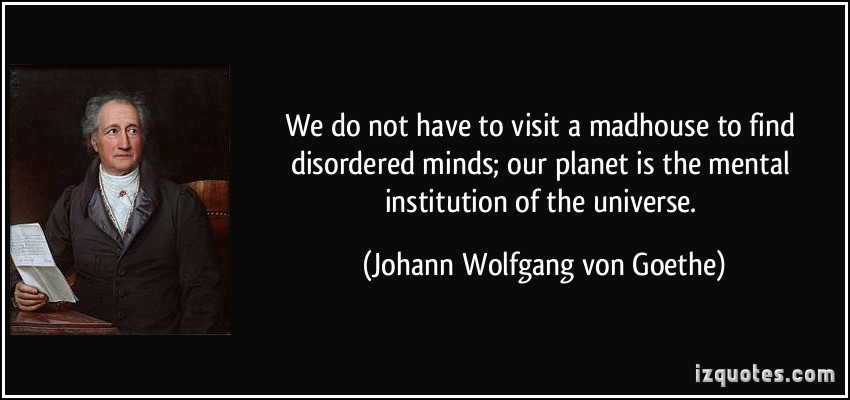

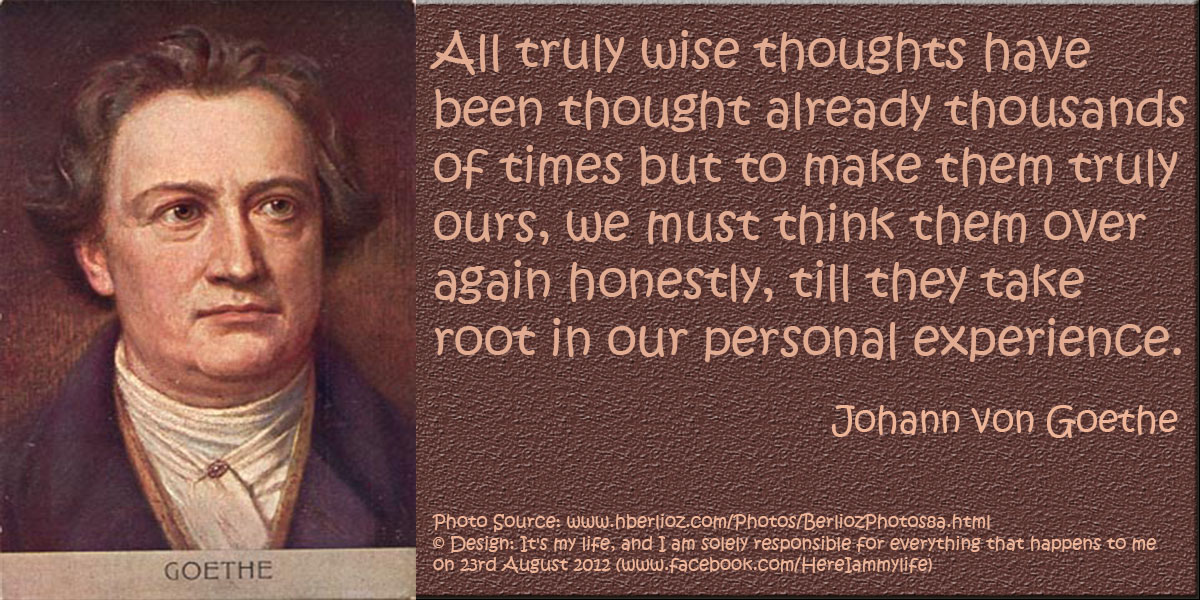

And since this thread is ultimately about the Magic of Dreams:
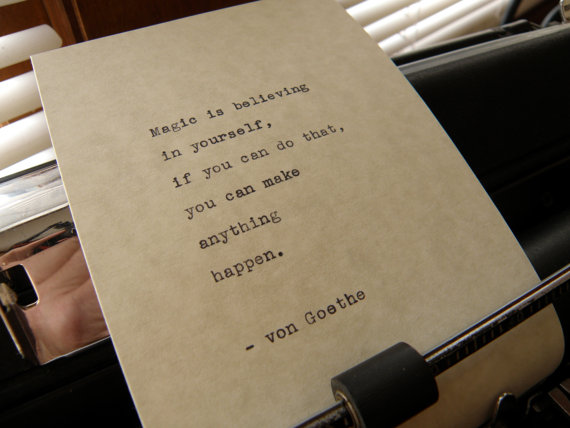




And since this thread is ultimately about the Magic of Dreams:

I'll talk about Faust later in depth and then see where that leads, but for now I'll leave yall with a few more good quotes to think about (as I have
to prepare and print out and mail off a few documents immediately and I've lost too much time):
I guess the whole concept of bringing up Goethe and Hesse relates to the overall theme of creativity and dreams and how hard life can be but that hardship is exactly what chisels us into something far greater than we were before -
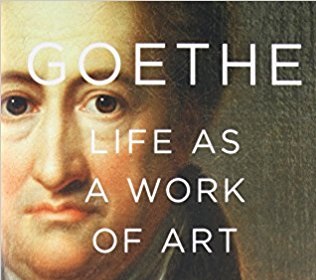
You see,
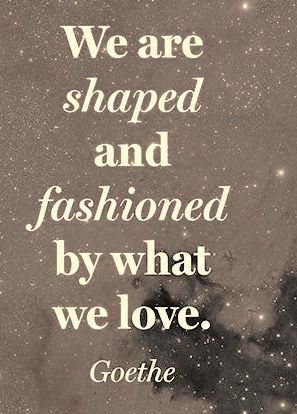
and

Dreaming is about the Impossible...
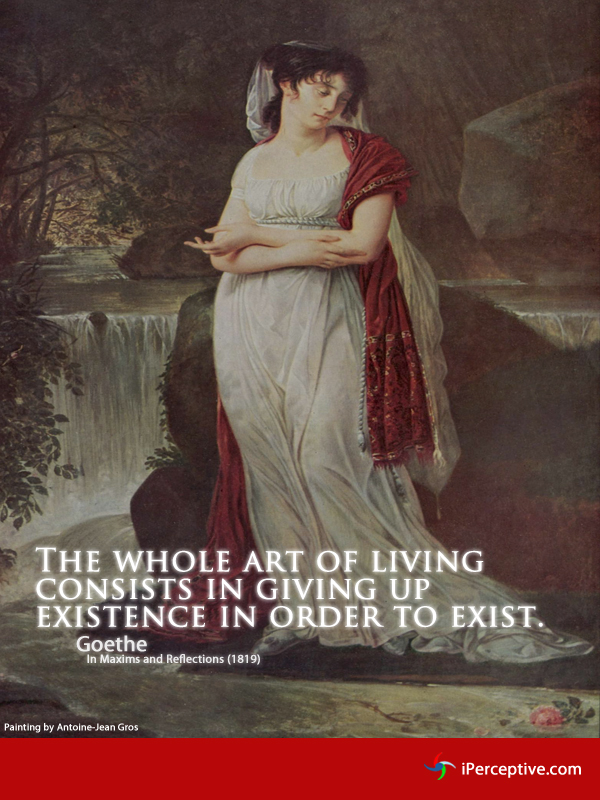
So...

I guess the whole concept of bringing up Goethe and Hesse relates to the overall theme of creativity and dreams and how hard life can be but that hardship is exactly what chisels us into something far greater than we were before -

You see,

and

Dreaming is about the Impossible...

So...

edit on 5/9/2018 by muzzleflash because: (no reason given)
I like to dream, yes, yes
Right between the sound machine
On a cloud of sound I drift in the night
Any place it goes is right
Goes far, flies near
To the stars away from here
Well, you don't know what we can find
Why don't you come with me little girl
On a magic carpet ride
Well, you don't know what we can see
Why don't you tell your dreams to me
Fantasy will set you free
Close your eyes girl
Look inside girl
Let the sound
Take you away
Last night I hold Aladdin's lamp
So I wished that I could stay
Before the thing could answer me
Well, someone came and took the lamp away
I looked around a lousy candle's all I found
Well, you don't know what we can find
Why don't you come with me little girl
On a magic carpet ride
Well, you don't know what we can see
Why don't you tell your dreams to me
Fantasy will set you free
Close your eyes girl
Look inside girl
Let the sound
Take you away
Great new stuff!
Love the Goethe quotes and "Magic Carpet Ride" is one of my favs!
Love the Goethe quotes and "Magic Carpet Ride" is one of my favs!
The other night I was really upset and just for some strange reason fell into my compulsion and asked the Universe "explain to me what I'm going
through!", and this is what I got:
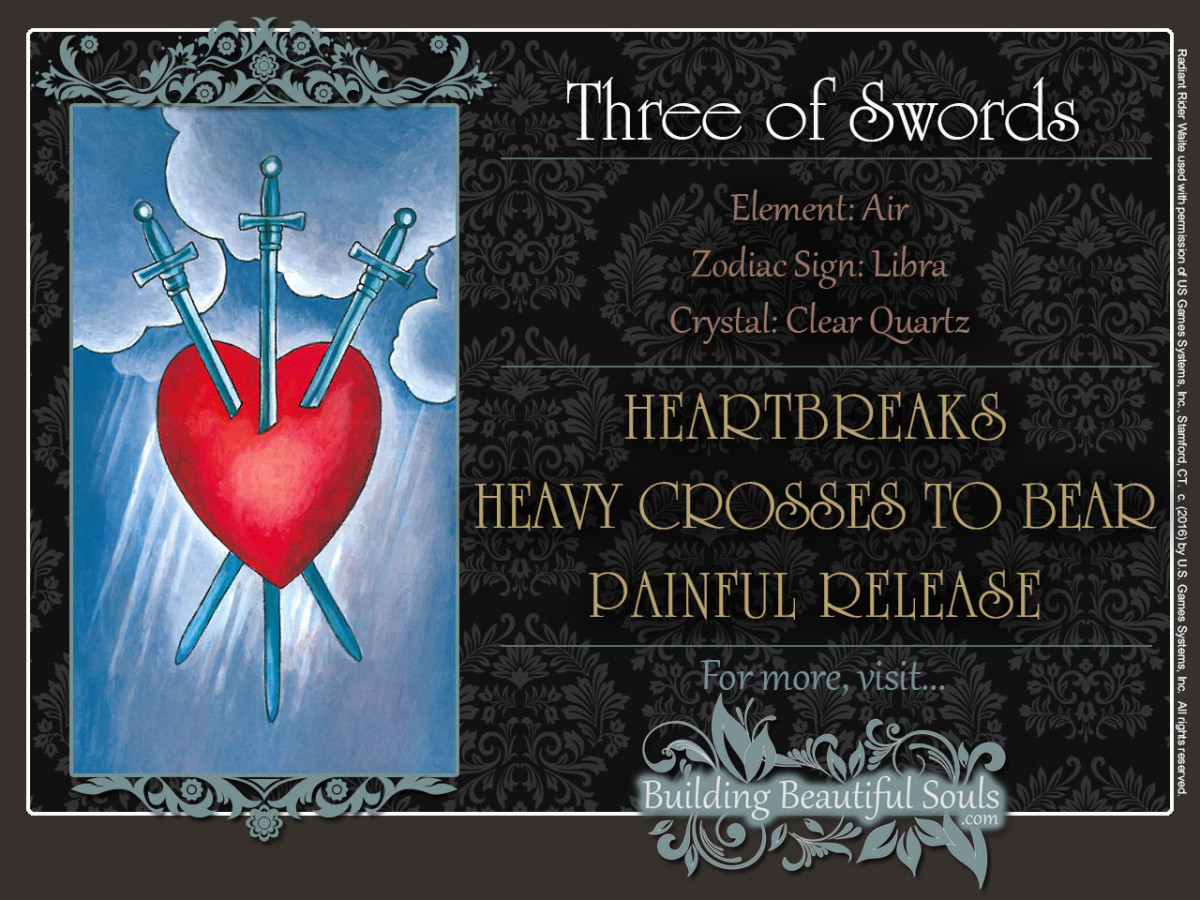
I don't think God could have responded more clearly or accurately through this system of divination (Tarot), as this is precisely what I'm going through.
I'm no stranger to pain or misery, but the recent bout in the last few years has been the most severe and pronounced episode in my entire life by a long shot. Everything from every direction has culminated in an overwhelmingly devastating force that I simply cannot withstand.
So what's up with this? How does the Universe speak so clearly to me and what does that mean for me in my life? What am I suppose to do? The only thing I know how to do is just to hang on and survive with Faith that it will get better, and even that in itself is sapping all of my energy away. It's like I'm hanging on by a thread...
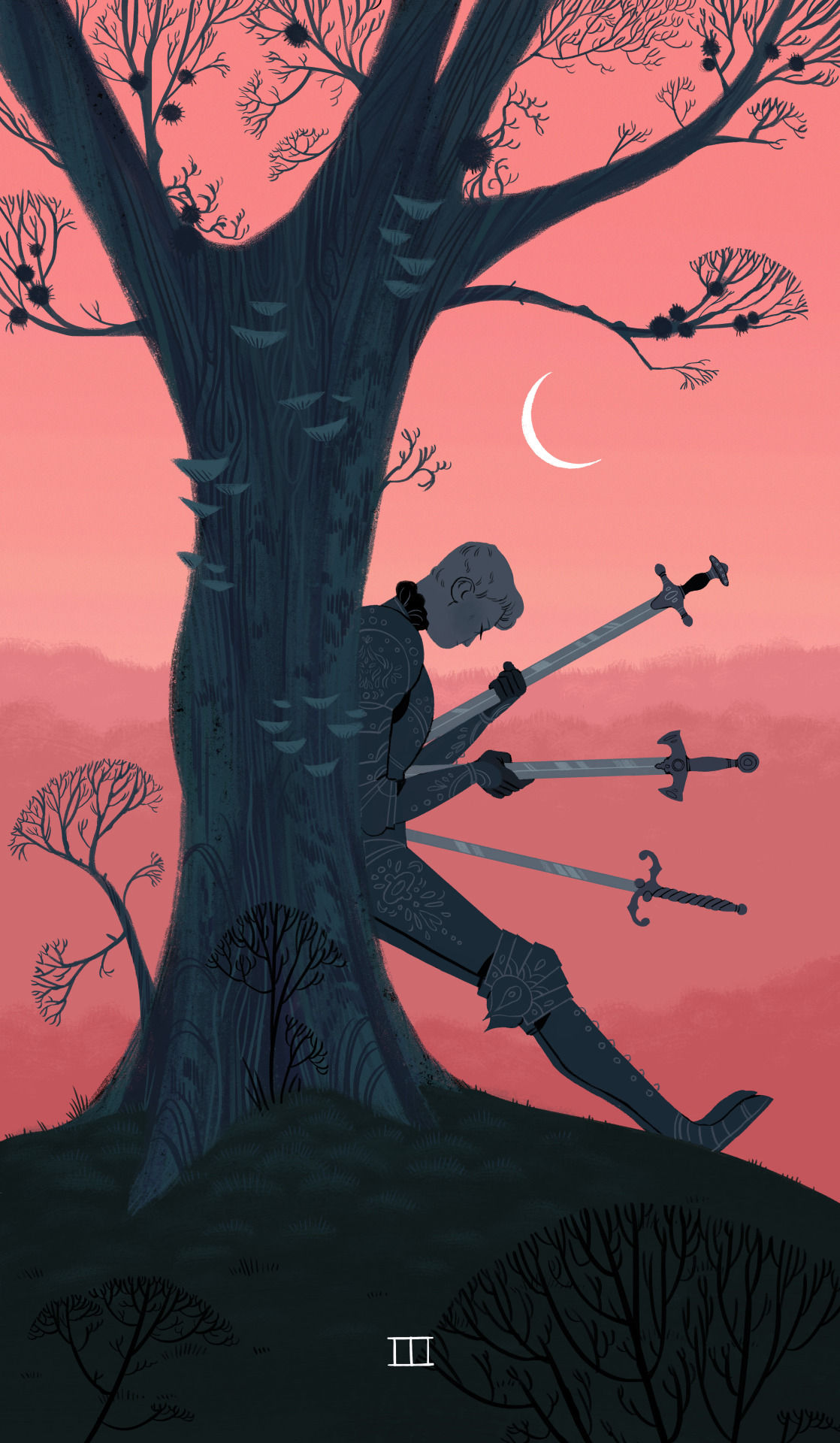
Will there be a fulfilling experience in the future? Will I ever find what I seek?
Omg I wish I could recover and move forward.
It's hard for me to admit a loss, and I don't think any of it was fair. I think it was all cheating and trickery that enabled my loss. I am so arrogant that I simply don't see how I could lose if it came down to just my skills alone.
And even aside of the lies and trickery, aside of chance circumstances and the fog of war, I still think I should have overcame all the odds and been victorious because that IS my Spirit! I win, I can outdo anyone and anything... right??
My whole life I lost at love every step of the way... I never had any substantial victory ever even for a moment. It was always loss. My own wife, the only woman who ever gave me a chance, hated me because I was an immature child, always suspicious and jealous, always upset about how unfair everything was and how everything was a disaster from the first day forward.
So do I always win??? Really? Am I completely delusional?? I don't even know what winning is. I've never won. Not even once. I've been in denial for my entire life, because I believed I should have been winning. I've always been so far behind the curve that I try harder and harder and get more frustrated and confused.
And then it all came to me, I'd try one more time utilizing everything I've learned and this time finally I'd get it right. This time I'd have the Force of God and all the Spirits behind me, this time I'd be divinely inspired and I would invoke intervention so maybe finally I'd win in the only thing that ever mattered to me - love.
Then it all fell apart completely. Then I lost the rest of what I actually had but didn't realize I had. I just fell off the cliff into the abyss being sucked into the maelstrom straight into the pits of my own personal Hell. And that is where I now dwell. I at least still have Hope that I might escape, but even that is fleeting.
I had a good life and I didn't even see it. I didn't recognize it for what it was. I have 2 perfect children that are brilliant students, very well behaved, and in excellent health. I loved them as best as any father could and I have no regrets about that but, I do regret my excessive ambitions - I wanted so much more. I wasn't happy with my ungrateful wife, I couldn't trust her and I never once believed she actually loved or believed in me.

The Three of Swords represents rejection, sadness, loneliness, heartbreak, betrayal, separation and grief. Such events feel so painful because they are unexpected.
That said, pain, sorrow and grief are often a necessity in the journey of life. Without pain, there would be no challenge and no lessons learned. Pain can be a great motivator because it encourages you to surmount obstacles and ultimately learn from your mistakes. Each challenge you encounter creates that initial pain, which is inevitably turned into an opportunity to grow stronger and to change the direction of your life as a result of the lessons learned. While the pain may cloud your vision for a certain period, it will eventually allow you to see clearly and to put the past behind you. Though life seems meaningless at the time, recovery can and will occur. It takes faith, self-love, forgiveness and time. Count your blessings.
The Three of Swords therefore serves as a reminder that if you can start to see pain as a learning opportunity, life will suddenly become less painful. You need to really get in touch with pain and sorrow. Challenges remain but once they are no longer perceived as negative or ‘bad’, they lose a lot of their impact. This card is therefore encouraging you that you have the ability to conquer any pain that comes your way. Understand how the pain can help you grow. If someone has betrayed you and you do not think you can ever love again, challenge that belief. Do not be surprised when your heart emerges from darkness, capable of loving even more than before.
I don't think God could have responded more clearly or accurately through this system of divination (Tarot), as this is precisely what I'm going through.
I'm no stranger to pain or misery, but the recent bout in the last few years has been the most severe and pronounced episode in my entire life by a long shot. Everything from every direction has culminated in an overwhelmingly devastating force that I simply cannot withstand.
So what's up with this? How does the Universe speak so clearly to me and what does that mean for me in my life? What am I suppose to do? The only thing I know how to do is just to hang on and survive with Faith that it will get better, and even that in itself is sapping all of my energy away. It's like I'm hanging on by a thread...

Similarly, the Three of Swords speaks of loss and difficulty, of sacrifice and broken relationships. It follows the difficult decision required in the Two of Swords, where you may be avoiding the necessity of making a tough choice. In the Three of Swords, the choice has been made, and you are now experiencing the consequences of your action.
Often, however, the pain of losing something you once valued (such as a ‘comfortable’ relationship in which you are no longer growing) is necessary in order to prepare you for a more fulfilling experience in the future.
Will there be a fulfilling experience in the future? Will I ever find what I seek?
The Three of Swords is also about release. When you have suffered a major setback, or loss, it is a good time to have a good cry, which is all part of the cleansing process. Expressing your sadness and letting it all out will then help you to move on to better times. However, it is also important that you continue to focus on the future path ahead. There can be a risk that you may become overly absorbed in the loss and the surrounding emotions that you lose sight of the need to just let go and move on. The loss becomes your focus rather than the recovery. It is time to accept the loss and then move forward with your life.
Omg I wish I could recover and move forward.
It's hard for me to admit a loss, and I don't think any of it was fair. I think it was all cheating and trickery that enabled my loss. I am so arrogant that I simply don't see how I could lose if it came down to just my skills alone.
And even aside of the lies and trickery, aside of chance circumstances and the fog of war, I still think I should have overcame all the odds and been victorious because that IS my Spirit! I win, I can outdo anyone and anything... right??
My whole life I lost at love every step of the way... I never had any substantial victory ever even for a moment. It was always loss. My own wife, the only woman who ever gave me a chance, hated me because I was an immature child, always suspicious and jealous, always upset about how unfair everything was and how everything was a disaster from the first day forward.
So do I always win??? Really? Am I completely delusional?? I don't even know what winning is. I've never won. Not even once. I've been in denial for my entire life, because I believed I should have been winning. I've always been so far behind the curve that I try harder and harder and get more frustrated and confused.
And then it all came to me, I'd try one more time utilizing everything I've learned and this time finally I'd get it right. This time I'd have the Force of God and all the Spirits behind me, this time I'd be divinely inspired and I would invoke intervention so maybe finally I'd win in the only thing that ever mattered to me - love.
Then it all fell apart completely. Then I lost the rest of what I actually had but didn't realize I had. I just fell off the cliff into the abyss being sucked into the maelstrom straight into the pits of my own personal Hell. And that is where I now dwell. I at least still have Hope that I might escape, but even that is fleeting.
I had a good life and I didn't even see it. I didn't recognize it for what it was. I have 2 perfect children that are brilliant students, very well behaved, and in excellent health. I loved them as best as any father could and I have no regrets about that but, I do regret my excessive ambitions - I wanted so much more. I wasn't happy with my ungrateful wife, I couldn't trust her and I never once believed she actually loved or believed in me.
What did I learn? I learn that I screwed everything up. I learned that jealousy and suspicion rips everything apart. I didn't know that until it was
too late. I learned that my anger is unacceptable and only destroyed me. I learned that I took everything for granted. I learned that I am a spoiled
immature child who hasn't learned anything yet. I learned that real life is harder than anything I ever knew in my prior sheltered lifestyle. I
learned that I was a judgmental prejudiced uncaring arrogant prick.
Ok?? That's who I had become even though that's not who I believe I am. But somehow that's what happened to me. Somehow I failed at everything. I failed at being "me".
I was being selfish. I only cared about me first and foremost. I was irresponsible and demanding. The most immature person I ever have known. And I hid it from everyone so cunningly, I was so narcissistic. I was potentially on the road to becoming a true sociopath and had I not lost everything when I did, had others played into my hand, maybe I would have?
I don't think I am, I think I'm a soft-spoken soft-hearted caring and loving person that wants to help others. I don't ask much of anyone. I'm not perfect I know this all too well, but I'm a sensitive emotional person that's easily hurt.
I've been hurting my whole life but I never gave up on allowing my Heart to feel. I didn't accept building a wall around myself or becoming cold and numb. I can't accept that. I can't allow myself to build walls or become cold and uncaring because it will eliminate any chance I have to ever finally experience that ultimate cosmic love I've been searching my entire life for. If I close myself off, I'll never have it.
So I just have to accept pain. Even if it means I will only know pain for the rest of my life. I have to take that risk. I have to feel so that I can be alive.
I've spent a large part of the time over the last 4 or 5 years trying to improve myself as best as I can. That means I have to admit that I'm wrong when I recognize it, and to be open to the possibility that I am wrong. I used to think I was never wrong, but all that's changing. I know that I've been very wrong and I'm very sorry, I know I can do so much better.
I know how to figure things out because I have a good natural grasp of philosophy, logic, math, and science. Those are some of my greatest talents (the ability to recognize and figure out that I'm wrong or simply don't know something).
I have been so gifted and blessed with the ability to admit I am Wrong and I messed up big time. That way maybe I can figure out how to change this thing around and fix myself and become a Good person finally. That's all I really want, is to love everyone and be happy and for everyone to be happy too. Nothing else really matters.
That means I had to learn what it was to be unselfish, to not be envious or jealous, to not be angry at others for whatever reasons they might give me, to not hate them. And that is so hard, every day, every hour of every day I have to continually work on that - believe me I could be so bitter about everything. It's hard not to be. It's hard to resist the desire for vengeance.
But I know in my Heart that none of those things will ever fulfill me. Only Love will fulfill me with Happiness. So therefore I must forgive everyone for everything I feel that they did wrong to me. It's a very long list. But I am forgiving everyone, which is sort of easy. The hard part is learning to forgive Me for what I did to me. For my own failures and mistakes and screw ups. For my own stupidity and foolish arrogance and horrible attitudes.
That is a gift isn't it? Something I don't think many ever get to experience or have.
Humility, forgiveness, acceptance...
I am Repenting. Even if I never gain anything from it and even if my enemies continue to destroy me and even if my life continues swirling around down the drain.
I Repent because I need Peace within my own torn shattered Soul. Because I cannot fight this endless war any longer, it only destroys me. I don't care about winning anymore.
I could never ever be the person I used to be anymore.
I cannot be angry or bitter or insulting or jealous or spiteful.
That is just not who I am and I don't have it in me.
I have purged it from my Heart and I am Purified from the poisons of hate.
I don't care about that anymore.
I feel like I'm already dead and this is my only chance to make this right...
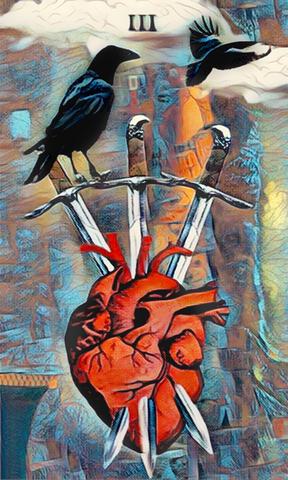
Ok?? That's who I had become even though that's not who I believe I am. But somehow that's what happened to me. Somehow I failed at everything. I failed at being "me".
I was being selfish. I only cared about me first and foremost. I was irresponsible and demanding. The most immature person I ever have known. And I hid it from everyone so cunningly, I was so narcissistic. I was potentially on the road to becoming a true sociopath and had I not lost everything when I did, had others played into my hand, maybe I would have?
I don't think I am, I think I'm a soft-spoken soft-hearted caring and loving person that wants to help others. I don't ask much of anyone. I'm not perfect I know this all too well, but I'm a sensitive emotional person that's easily hurt.
I've been hurting my whole life but I never gave up on allowing my Heart to feel. I didn't accept building a wall around myself or becoming cold and numb. I can't accept that. I can't allow myself to build walls or become cold and uncaring because it will eliminate any chance I have to ever finally experience that ultimate cosmic love I've been searching my entire life for. If I close myself off, I'll never have it.
So I just have to accept pain. Even if it means I will only know pain for the rest of my life. I have to take that risk. I have to feel so that I can be alive.
I've spent a large part of the time over the last 4 or 5 years trying to improve myself as best as I can. That means I have to admit that I'm wrong when I recognize it, and to be open to the possibility that I am wrong. I used to think I was never wrong, but all that's changing. I know that I've been very wrong and I'm very sorry, I know I can do so much better.
I know how to figure things out because I have a good natural grasp of philosophy, logic, math, and science. Those are some of my greatest talents (the ability to recognize and figure out that I'm wrong or simply don't know something).
I have been so gifted and blessed with the ability to admit I am Wrong and I messed up big time. That way maybe I can figure out how to change this thing around and fix myself and become a Good person finally. That's all I really want, is to love everyone and be happy and for everyone to be happy too. Nothing else really matters.
That means I had to learn what it was to be unselfish, to not be envious or jealous, to not be angry at others for whatever reasons they might give me, to not hate them. And that is so hard, every day, every hour of every day I have to continually work on that - believe me I could be so bitter about everything. It's hard not to be. It's hard to resist the desire for vengeance.
But I know in my Heart that none of those things will ever fulfill me. Only Love will fulfill me with Happiness. So therefore I must forgive everyone for everything I feel that they did wrong to me. It's a very long list. But I am forgiving everyone, which is sort of easy. The hard part is learning to forgive Me for what I did to me. For my own failures and mistakes and screw ups. For my own stupidity and foolish arrogance and horrible attitudes.
That is a gift isn't it? Something I don't think many ever get to experience or have.
Humility, forgiveness, acceptance...
I am Repenting. Even if I never gain anything from it and even if my enemies continue to destroy me and even if my life continues swirling around down the drain.
I Repent because I need Peace within my own torn shattered Soul. Because I cannot fight this endless war any longer, it only destroys me. I don't care about winning anymore.
I could never ever be the person I used to be anymore.
I cannot be angry or bitter or insulting or jealous or spiteful.
That is just not who I am and I don't have it in me.
I have purged it from my Heart and I am Purified from the poisons of hate.
I don't care about that anymore.
I feel like I'm already dead and this is my only chance to make this right...

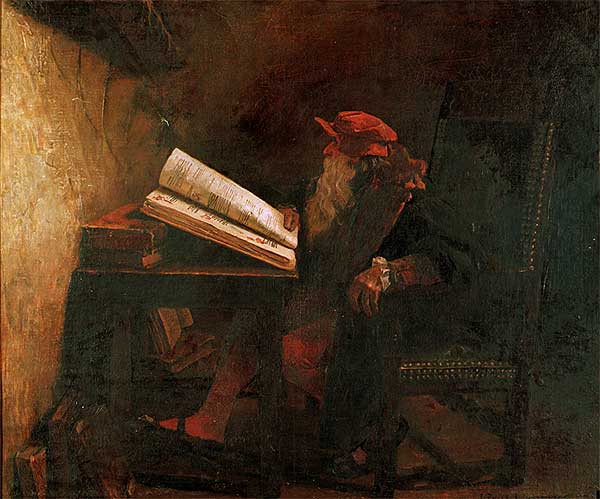
Faust is the protagonist of a classic German legend, based on the historical Johann Georg Faust (c. 1480–1540).
Faust is an erudite who is highly successful yet dissatisfied with his life, which leads him to make a pact with the Devil, exchanging his soul for unlimited knowledge and worldly pleasures. The Faust legend has been the basis for many literary, artistic, cinematic, and musical works that have reinterpreted it through the ages. "Faust" and the adjective "Faustian" imply a situation in which an ambitious person surrenders moral integrity in order to achieve power and success for a delimited term.
I've had many opportunities in my life to submit and surrender myself to a Faustian bargain. I've had plenty of temptation and motivation to just give up and sell out.
I love pleasure, I love knowledge.
But what's it worth? Is it worth suffering endlessly for a mere moment of gratification? No, hell no.
I'd rather be who I am right now than to experience false pleasures and false knowledge for just a mere moment. Right now I'm not doin so bad. I have my cigs and coffee and I'm pretty damn smart as it is. I don't need to make a deal with anyone.
I'd rather live alone in obscurity, making stupid mistakes and suffering physical pain than to sell out my Soul and lose my Self over some stupid meaningless BS anyways.
No demon, no devil, no secret society, no criminals, no corporations, no amount of drugs sex or money could ever convince me to sell out who I am and become some fake just for a few moments of bliss. It always goes wrong and always blows up in your face anyway right???
This story, Faust, is super famous because everyone knows this is true. Some people succumb to the temptations of wealth and sex and drugs... just so much incredible pleasures right? Just remember you're still human, you're still no better than me or anyone else. You still feel pain and bleed, you'll still do stupid things and screw up things you wished you hadn't.
Ok, about the story though and how it ties into "making your Dreams a reality" and why cutting a deal is so tempting but never acceptable no matter what:
The Faust of early books—as well as the ballads, dramas, movies, and puppet-plays which grew out of them—is irrevocably damned because he prefers human to divine knowledge; "he laid the Holy Scriptures behind the door and under the bench, refused to be called doctor of Theology, but preferred to be styled doctor of Medicine".
So Faust rejected divine knowledge. Hmmmm?
The story was popularised in England by Christopher Marlowe, who gave it a classic treatment in his play, The Tragical History of Doctor Faustus (whose date of publication is debated, but likely around 1587).[3] In Goethe's reworking of the story two hundred years later, Faust becomes a dissatisfied intellectual who yearns for "more than earthly meat and drink" in his life.
So Marlowe and Goethe created the two primary versions of this story, which are interpretations of the Faustian Legend or Myth.
Faust is bored and depressed with his life as a scholar. After an attempt to take his own life, he calls on the Devil for further knowledge and magic powers with which to indulge all the pleasure and knowledge of the world. In response, the Devil's representative, Mephistopheles, appears. He makes a bargain with Faust: Mephistopheles will serve Faust with his magic powers for a set number of years, but at the end of the term, the Devil will claim Faust's soul, and Faust will be eternally enslaved.
Look, that's almost me. I've been so bored and depressed and right on the edge, almost willing to do anything to turn this thing around. And the devil's been right there the whole time, making me an offer. But I could never accept it, it's not a good deal. That doesn't mean I won't be fooled, but such an obvious ploy is too simple and it will take great trickery and subterfuge to entice me into it. Maybe I already was tricked and don't fully see it yet? My lifes in shambles as it is, who knows, maybe I did get tricked?
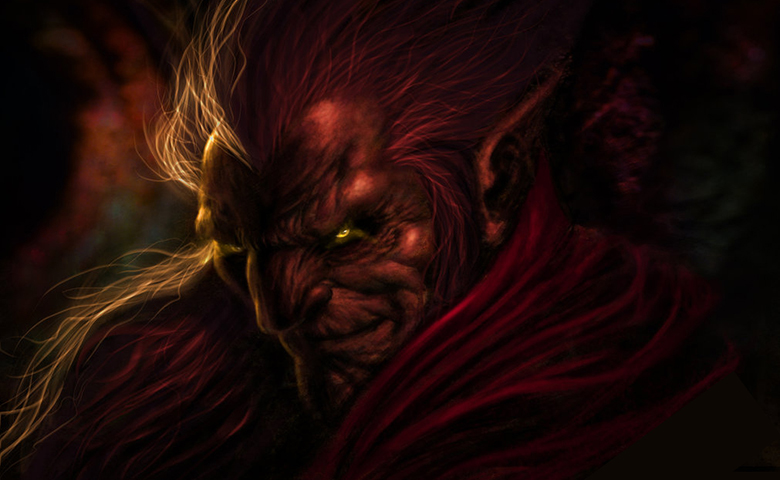
Under certain conditions I would do it, but not for my Soul. That's the only thing I have and I cannot bargain with that. It's my sole possession. What's a Dream worth if I can't have my Dream in the end anyways?
During the term of the bargain, Faust makes use of Mephistopheles in various ways. In many versions of the story, particularly Goethe's drama, Mephistopheles helps Faust seduce a beautiful and innocent girl, usually named Gretchen, whose life is ultimately destroyed when she gives birth to Faust's bastard son. Realizing this unholy act, she drowns the child, and is held for murder. However, Gretchen's innocence saves her in the end, and she enters Heaven after execution. In Goethe's rendition, Faust is saved by God via his constant striving—in combination with Gretchen's pleadings with God in the form of the eternal feminine. However, in the early tales, Faust is irrevocably corrupted and believes his sins cannot be forgiven; when the term ends, the Devil carries him off to Hell.
So in Goethe's version Faust actually got to go to Heaven anyways because God's Grace overrides all bargains and all sins.
Would you make the deal even if you knew the devil's contracts are useless and that God would let you into Heaven anyways? I wouldn't. Because it's a bad deal. Look at what happens to Faust - he made a bad wish. The whole series of events gets outta hand and the woman he loves dies and everything's all screwed up. I don't want anything like that. I just want a decent normal life... all this drama and pain and crazy stuff sucks! Mephisto is insane!
Now, Goethe's Faust is considered his greatest masterpiece, so let's look closer shall we?
Goethe's Faust complicates the simple Christian moral of the original legend. A hybrid between a play and an extended poem, Goethe's two-part "closet drama" is epic in scope. It gathers together references from Christian, medieval, Roman, eastern, and Hellenic poetry, philosophy, and literature.
The composition and refinement of Goethe's own version of the legend occupied him for over sixty years (though not continuously). The final version, published after his death, is recognized as a great work of German literature.
He put everything into telling us this tale and teaching us this lesson.
The story concerns the fate of Faust in his quest for the true essence of life ("was die Welt im Innersten zusammenhält"). Frustrated with learning and the limits to his knowledge, power, and enjoyment of life, he attracts the attention of the Devil (represented by Mephistopheles), who makes a bet with Faust that he will be able to satisfy him; a notion that Faust is incredibly reluctant towards, as he believes this happy zenith will never come. This is a significant difference between Goethe's "Faust" and Marlowe's; Faust is not the one who suggests the wager.
In the first part, Mephistopheles leads Faust through experiences that culminate in a lustful relationship with Gretchen, an innocent young woman. Gretchen and her family are destroyed by Mephistopheles' deceptions and Faust's desires. Part one of the story ends in tragedy for Faust, as Gretchen is saved but Faust is left to grieve in shame.
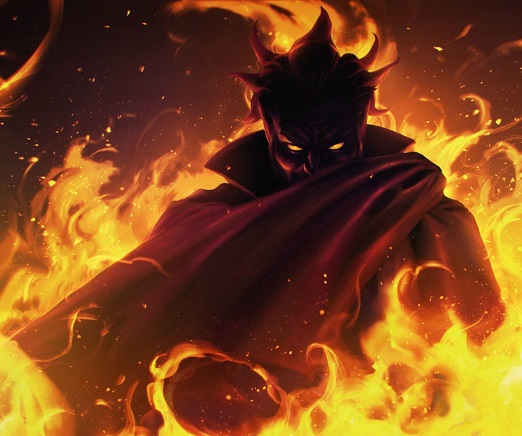
Aspirat primo fortuna labori
(Fortune smiles on our best effort)
Me duce tutus eris
(Let me lead, you will be safe)
Vox populi vox dei
(Voice of people, voice of God)
Ad maiorem dei gloriam
(For the greatest Glory of God)
Ad infinitum
(To infinity)
You know just who I am
Don't be so distant
'Cause when you're lost, I am solely there
To share your grief
Wailing your sorrow is only my way to comfort you
Reminders of innocent youth
Waiting for morrow, you're lonely, I name your solitude
I speaketh the truth
Now tell me all about your pain
Down to the detail
Don't say it's love
Your fragile heart feeds my contempt
Wailing your sorrow is only my way to comfort you
Reminders of innocent youth
Waiting for morrow, you're lonely, I name your solitude
I speaketh the truth
Chase the heathen call
We belong, you and I
Unison in all you deny
Wailing your sorrow is only my way to comfort you
Reminders of innocent youth
Waiting for morrow, you're lonely, I name your solitude
I speaketh the truth
I am the thorn in your side that seeks accomplishment
Reminding the mortal of death
I am the spore of your pride, an angel, Heaven-sent
The master of all
I am the urge of the flesh
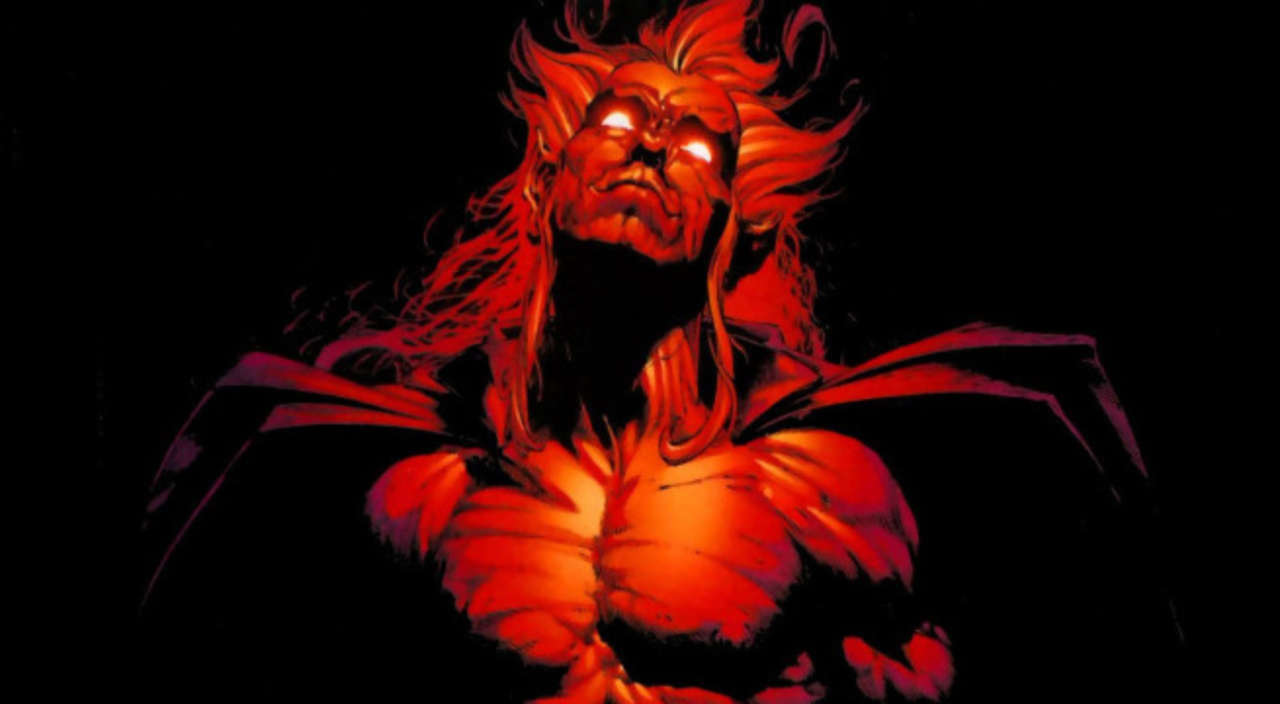
The second part begins with the spirits of the earth forgiving Faust (and the rest of mankind) and progresses into allegorical poetry. Faust and his Devil pass through and manipulate the world of politics and the world of the classical gods, and meet with Helen of Troy (the personification of beauty). Finally, having succeeded in taming the very forces of war and nature, Faust experiences a singular moment of happiness.
A singular fleeting moment of happiness??
No, what we really need in life is Lasting True Happiness that will not dissolve through the erosion of Time.
Now, check out the ending::
Mephistopheles tries to seize Faust's soul when he dies after this moment of happiness, but is frustrated and enraged when angels intervene due to God's grace. Though this grace is truly 'gratuitous' and does not condone Faust's frequent errors perpetrated with Mephistopheles, the angels state that this grace can only occur because of Faust's unending striving and due to the intercession of the forgiving Gretchen.
So there is a Happy ending due to Love and Forgiveness, even if it's undeserved.
The final scene has Faust's soul carried to heaven in the presence of God by the intercession of the "Virgin, Mother, Queen, ... Goddess kind forever... Eternal Womanhood.[12] The Goddess is thus victorious over Mephistopheles, who had insisted at Faust's death that he would be consigned to "The Eternal Empty."
So the Goddess defeats Mephisto's designs with Love.
Now, if you wanna learn about the 100+ other versions of the story feel free to browse the wiki, but I wanna focus on the secrets of the occult embedded within...
You wanna know some of the deepest darkest so-called "Satanic" secrets? Well you're in the right place because I'm sorta like the

of all sorts of secret knowledge.
I didn't trade anything for it per se, though I am paying a price as I'm in trouble with the devil for my devious deeds.
It's just a figure of speech and a metaphor, but essentially I glean all this information Spiritually, that is, by investigating the subconscious mind and mining out gems of knowledge that are now mine.
So let's talk about:
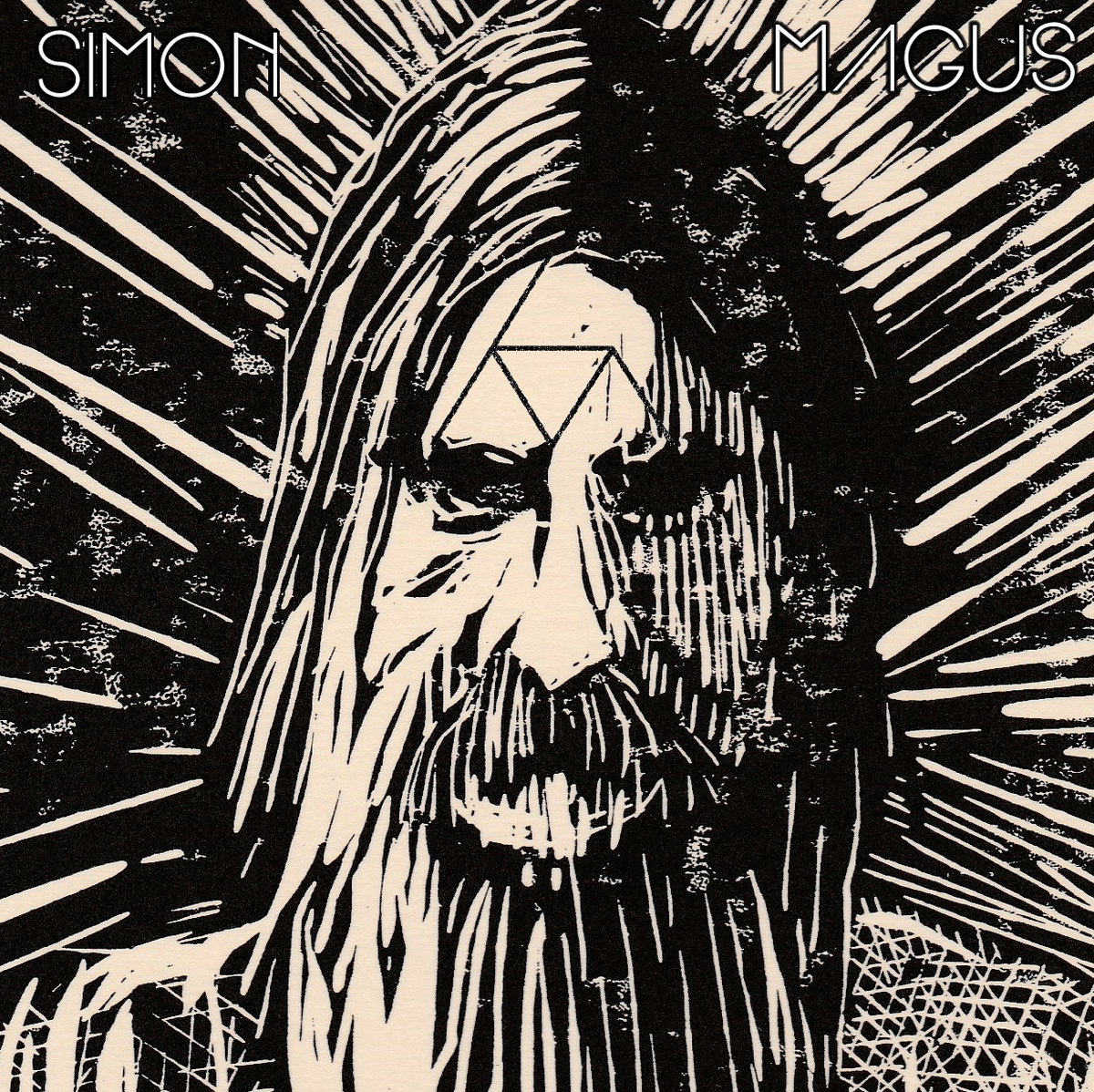
So Faust is intimately connected to this Simon Magus character, St Peter, Odin, the Caduceus, and enlightenment how you ask?
Here I'll show you--
So he's considered the greatest enemy of the church and interestingly enough, inadvertently rescues it.
Simon is called "The Father of Heresy", and the "Founder of Gnosticism".
Ok so his sect, the Simonians and their text, The Great Declaration, are full of a lot standard stuff I often discuss in my threads.
Here's the basic breakdown:
Ok so the Boundless Power is God, the Force behind all things.
In various Apocryphal texts Simon was said to be levitating and doing other sorcery, claiming to be God, etc, and Peter prayed for God to stop him and he supposedly fell from mid-flight and was gravely injured as a result.
In one text it says Nero had Peter and Paul arrested and then to wait 3 days for Simon Magus to raise from the dead (I guess Nero believed he might have been the messiah?). This is in "The Acts of Peter and Paul" if you're interested to read it.

of all sorts of secret knowledge.
I didn't trade anything for it per se, though I am paying a price as I'm in trouble with the devil for my devious deeds.
It's just a figure of speech and a metaphor, but essentially I glean all this information Spiritually, that is, by investigating the subconscious mind and mining out gems of knowledge that are now mine.
So let's talk about:

So Faust is intimately connected to this Simon Magus character, St Peter, Odin, the Caduceus, and enlightenment how you ask?
Here I'll show you--
Many aspects of the life of Simon Magus are echoed in the Faust legend of Christopher Marlowe and Johann Wolfgang von Goethe. Hans Jonas writes, "surely few admirers of Marlowe's and Goethe's plays have an inkling that their hero is the descendant of a gnostic sectary and that the beautiful Helen called up by his art was once the fallen Thought of God through whose raising mankind was to be saved."
So he's considered the greatest enemy of the church and interestingly enough, inadvertently rescues it.
Simon the Sorcerer, or Simon the Magician(Latin: Simon Magus), is a religious figure whose confrontation with Peter is recorded in Acts 8:9–24. The act of simony, or paying for position and influence in the church, is named after Simon.
Simon is called "The Father of Heresy", and the "Founder of Gnosticism".
Ok so his sect, the Simonians and their text, The Great Declaration, are full of a lot standard stuff I often discuss in my threads.
Here's the basic breakdown:
The whole book is a mixture of Hellenism and Hebraism, in which the same method of allegory is applied to Homer and Hesiod as to Moses. Starting from the assertion of Moses that God is "a devouring fire" (Deuteronomy 4:24), Simon combined therewith the philosophy of Heraclitus which made fire the first principle of all things.
This first principle he denominated a "Boundless Power," and he declared it to dwell in the sons of men, beings born of flesh and blood. But fire was not the simple thing that the many imagined, and Simon distinguished between its hidden and its manifest qualities, maintaining that the former were the cause of the latter.
Like the Stoics he conceived of it as an intelligent being. From this ungenerated being sprang the generated world of which we know, whereof there were six roots, having each its inner and its outer side, and arranged as follows:
These six roots, Mind, Voice, Reason, Reflection, Name, and Thought, are also called six powers. Commingled with them all was the great power, the "Boundless Power." This was that which "has stood, stands, and will stand," the seventh power (root) corresponding to the seventh day after the six days of creation. This seventh power existed before the world, it is the Spirit of God that moved upon the face of the waters (Genesis 1:2).
It existed potentially in every child of man, and might be developed in each to its own immensity. The small might become great, the point be enlarged to infinity.[19] This indivisible point which existed in the body, and of which none but the spiritual knew, was the Kingdom of Heaven, and the grain of mustard-seed.[20]
But it rested with us to develop it, and it is this responsibility which is referred to in the words—"that we may not be condemned with the world" (1 Corinthians 11:32). For if the image of the Standing One were not actualized in us, it would not survive the death of the body.
Ok so the Boundless Power is God, the Force behind all things.
In various Apocryphal texts Simon was said to be levitating and doing other sorcery, claiming to be God, etc, and Peter prayed for God to stop him and he supposedly fell from mid-flight and was gravely injured as a result.
In one text it says Nero had Peter and Paul arrested and then to wait 3 days for Simon Magus to raise from the dead (I guess Nero believed he might have been the messiah?). This is in "The Acts of Peter and Paul" if you're interested to read it.
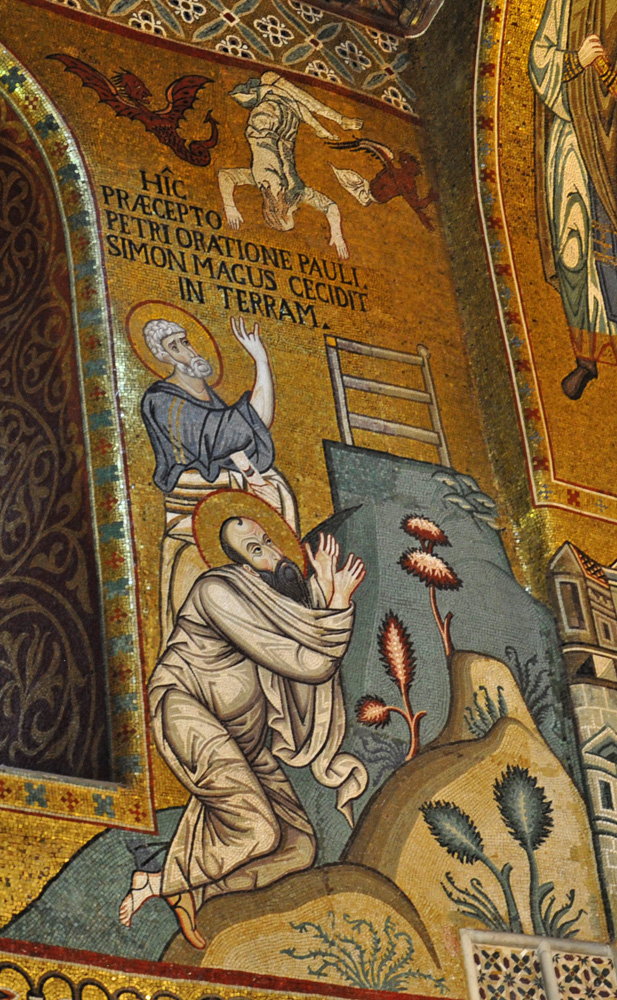
So that's like Peter n Paul watching the flying demons drop Simon Magus from the sky to his death.
This motif is repeated all over the place in church iconography around the world.
Note that he's upside down like the Hangman
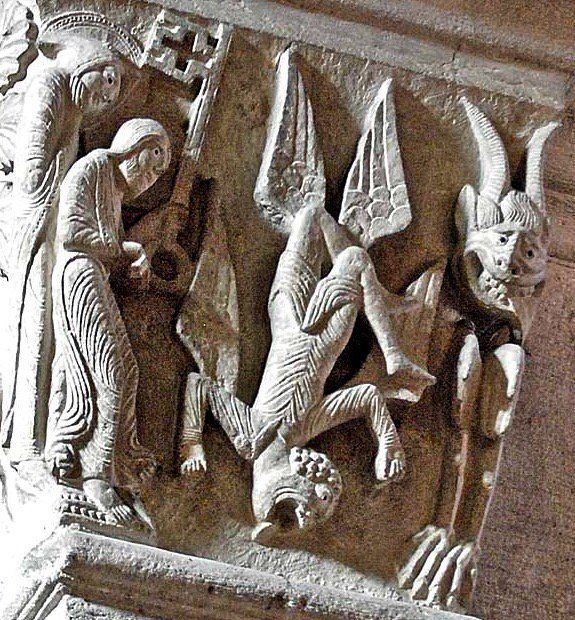
Which brings us to St Peter's crucifixion for daring to stop Simon's magic act.
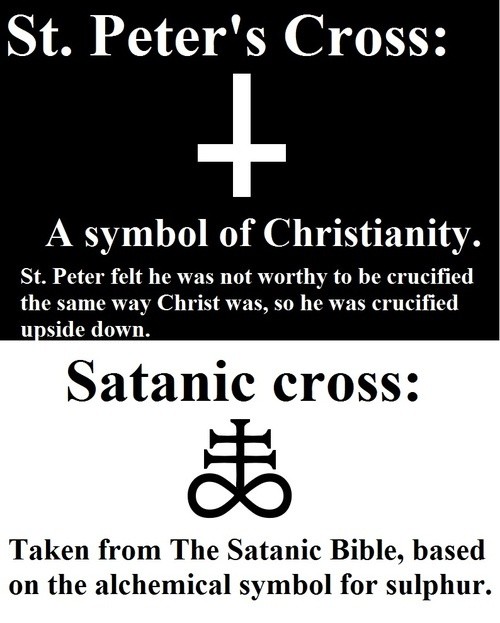
This is St Peter's Throne in St Peter's Basilicia in the Vatican:
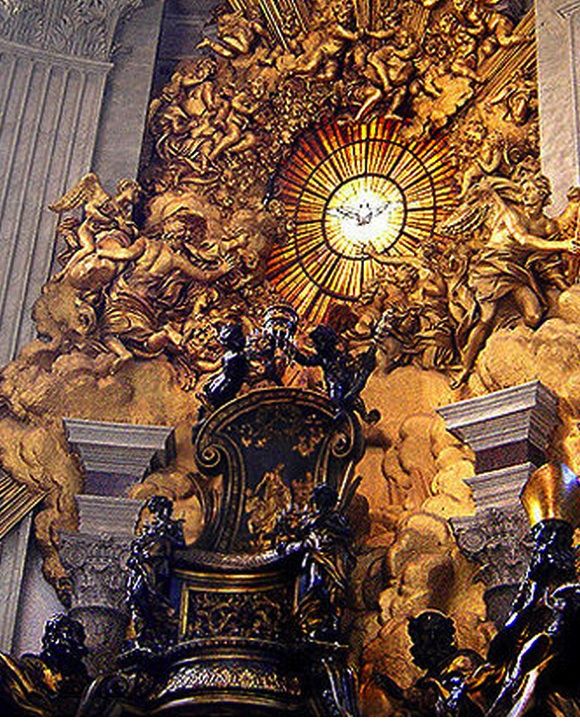
Let's talk about
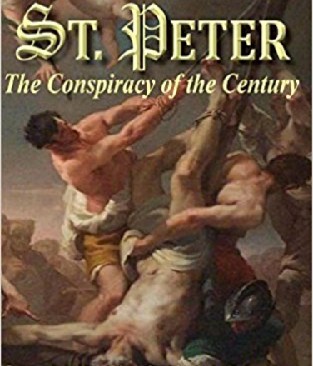

St Peter - Simon Peter
St Peter and his brother Andrew were fishermen and 2 of Jesus's 12 Apostles.
St. Peter was called the "Rock of the Church" by Jesus (Petra meaning rock, so therefore Peter, also meaning precious gemstone, jewel), and he was the first "Pope" in Rome.
According to the gospels, Peter confessed Jesus as the Messiah,[5] was part of Jesus's inner circle,[6] thrice denied Jesus[7] and wept bitterly once he realised his deed, and preached on the day of Pentecost.[8]
According to Christian tradition, Peter was crucified in Rome under Emperor Nero Augustus Caesar. It is traditionally held that he was crucified upside down at his own request, since he saw himself unworthy to be crucified in the same way as Jesus. Tradition holds that he was crucified at the site of the Clementine Chapel. His remains are said to be those contained in the underground Confessioof St. Peter's Basilica,
St Peter is also associated with the gates of Heaven and the two keys as Jesus gave him "The Keys of Heaven".
Jesus promised to Saint Peter, empowering him to take binding actions.[2] In the Gospel of Matthew 16:19, Jesus says to Peter, "I will give you the keys of the kingdom of heaven, and whatever you bind on Earth shall be bound in heaven, and whatever you loose on Earth shall be loosed in heaven."
The Gold Key represents the powers of Heaven (Spiritual) and the Silver Key the powers of Earth (physical).
This refers to powers and principalities and the abilities to create and destroy, to summon and dispel, of light and dark sides, etc etc.
The Force.
Now about that so called Satanic cross symbol derived from the alchemical symbol for sulfur:
The Leviathan Cross
It seems only LaVey's church uses that particular symbol.
The more common alchemical symbol for sulfur is the fire triangle on top of the earth cross.
It's also called the Brimstone cross.
They are thought to associate it as sulfur or brimstone is equated with the Devil or demons.
Depth and surfacing? Hmmm
So they see Sulfur and Mercury as breeding all the metals.
This is part of the reason why "Metal" music is associated with Satanism and why that genre of music is called "Metal". There's more to that though...
The Leviathan Cross
The Leviathan Cross is sometimes referred to the cross of Satan, which means the "Satans Cross". Depicted on the bottom is an infinity sign (∞), and above is a double cross (‡).
The Double cross symbolizes protection and balance between persons. The infinity sign underlines the constant and infinite nature and most likely symbolizes the eternal universe, this may have been used by Anton LaVey in The Satanic Bible to as a mockery of the cross, to show that humans are their own centrum of balance, and truth.
This is what the ideology of Anton LaVey and the followers of the Church of Satan believe, and this is what this symbol represents in this association.
It seems only LaVey's church uses that particular symbol.
The more common alchemical symbol for sulfur is the fire triangle on top of the earth cross.
It's also called the Brimstone cross.
They are thought to associate it as sulfur or brimstone is equated with the Devil or demons.
The association with the Leviathan makes it a symbol of depth and surfacing. The multiple crossroads of two crosses can be interpreted as a sign of free choice, it can also be seen as a stroke-through "equal-to" (=) to show that every person has their own life.
Depth and surfacing? Hmmm
Sulfur (“Leviathan Cross”) A symbol for the alchemical element Sulfur, (Brimstone) which is spiritually analogous to the human soul. Alchemically, sulfur has the qualities of masculine, hot and dry. Combined with Mercury (feminine, cool and moist), the pair were considered the parents of all metals.
So they see Sulfur and Mercury as breeding all the metals.
This is part of the reason why "Metal" music is associated with Satanism and why that genre of music is called "Metal". There's more to that though...
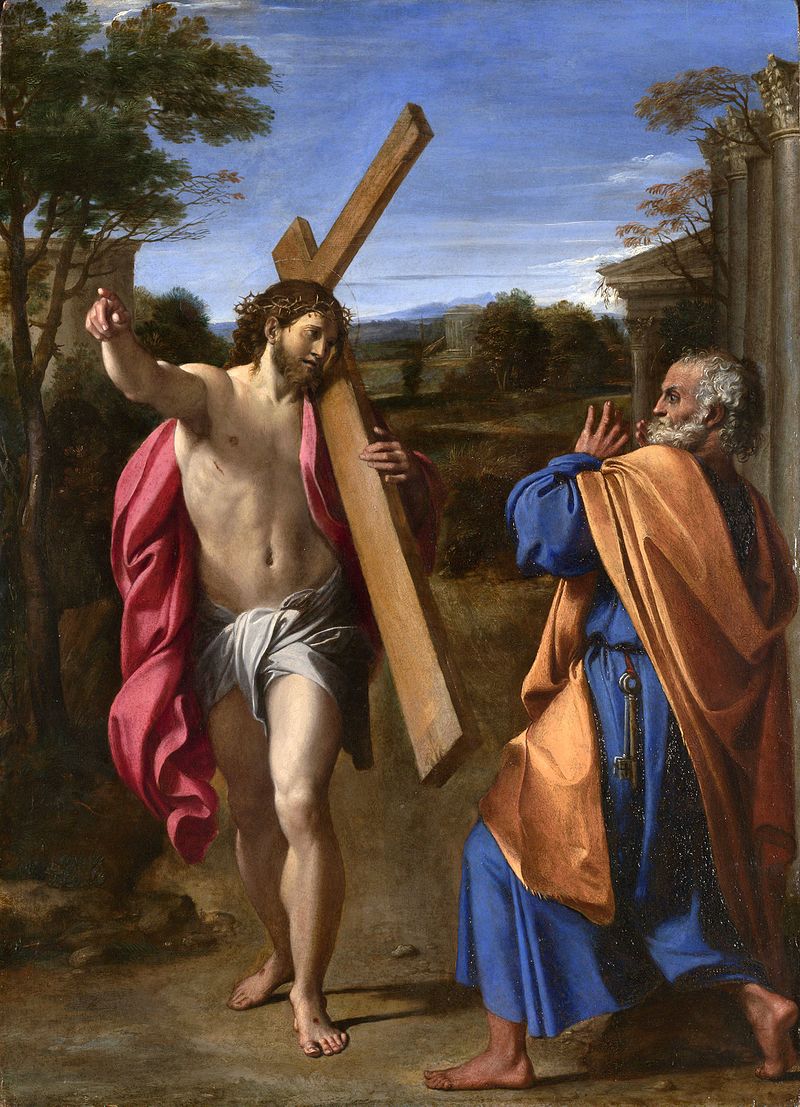
Domine, quo vadis?
The work depicts a scene featured in the apocryphal Acts of Peter. Saint Peter, while fleeing Rome along the ancient Via Appia, meets Christ outside the city, who is walking in the opposite direction towards the city, carrying his cross. Peter asks him, Domine, quo vadis? The question is in Latin and means "Lord, where are you going?" Jesus replies, Eo Romam iterum crucifigi, which means: "I am going to Rome to be crucified again."[1]
So Peter had this vision as he fled his fate in Rome, and Jesus reminded him of his past transgression of denying him - and Peter sought to avoid making that mistake again so went back to Rome.
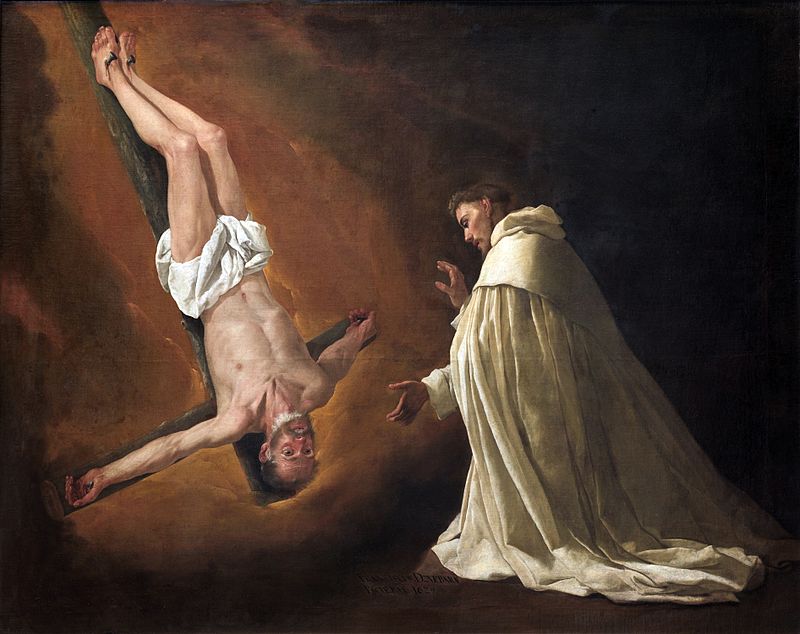
Another theme in art and iconography to look up is The Liberation - Deliverance of St Peter
Now... What more does this strange and suspicious Spirit have to tell us about tonight? Maybe a little more information about Hell and how all that works?
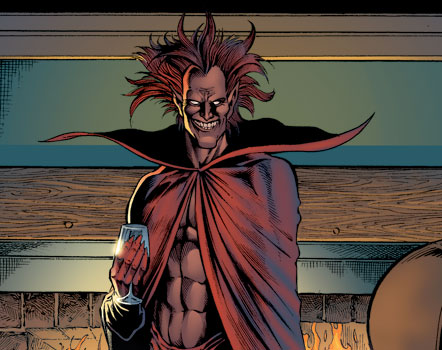
edit on 5/10/2018 by muzzleflash because: (no reason given)
edit on 5/10/2018 by muzzleflash because:
(no reason given)
So is St Peter the Rock of the Church or the Pope of Rock n Roll and Metal?
Think about this. His upside down cross is used by both Christianity AND Satanism. Why the dichotomy??
Here's why -
Mark 8:33
But when Jesus turned and looked at his disciples, he rebuked Peter. "Get behind me, Satan!" he said. "You do not have in mind the concerns of God, but merely human concerns."
Jesus called Peter "Satan"... ?
Matthew 16:23 says the same:
Jesus turned and said to Peter, "Get behind me, Satan! You are a stumbling block to me; you do not have in mind the concerns of God, but merely human concerns."
Continuing the passage in Mark 8 -
34 Then he called the crowd to him along with his disciples and said: “Whoever wants to be my disciple must deny themselves and take up their cross and follow me.
35 For whoever wants to save their lifeb will lose it, but whoever loses their life for me and for the gospel will save it.
36 What good is it for someone to gain the whole world, yet forfeit their soul?
37 Or what can anyone give in exchange for their soul?
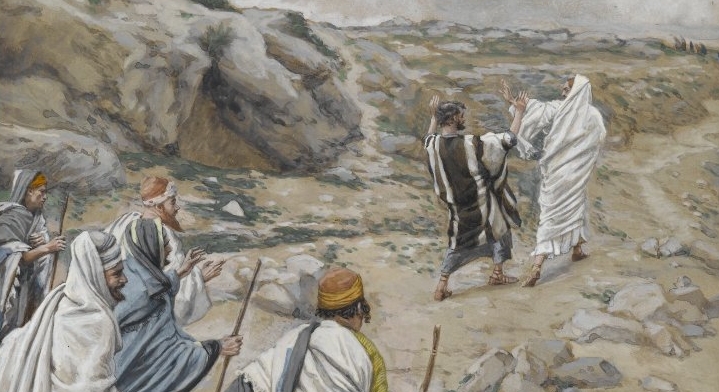
So are we seeing how the Faustian Bargain plays into the dilemma of seeking your Dreams and why it cannot be accepted? How Peter and the Hangman play into all this?
Does it make sense that I gleaned this from my own discussions with Mephisto and why I choose to make no pacts but am willing to listen?
You know the Devil knows the Bible including the Apocrypha better than anyone? It appears true because I didn't know hardly any of this...
Why would Mephisto tell me about this passage:

Think about this. His upside down cross is used by both Christianity AND Satanism. Why the dichotomy??
Here's why -
Mark 8:33
But when Jesus turned and looked at his disciples, he rebuked Peter. "Get behind me, Satan!" he said. "You do not have in mind the concerns of God, but merely human concerns."
Jesus called Peter "Satan"... ?
Matthew 16:23 says the same:
Jesus turned and said to Peter, "Get behind me, Satan! You are a stumbling block to me; you do not have in mind the concerns of God, but merely human concerns."
Continuing the passage in Mark 8 -
34 Then he called the crowd to him along with his disciples and said: “Whoever wants to be my disciple must deny themselves and take up their cross and follow me.
35 For whoever wants to save their lifeb will lose it, but whoever loses their life for me and for the gospel will save it.
36 What good is it for someone to gain the whole world, yet forfeit their soul?
37 Or what can anyone give in exchange for their soul?

So are we seeing how the Faustian Bargain plays into the dilemma of seeking your Dreams and why it cannot be accepted? How Peter and the Hangman play into all this?
Does it make sense that I gleaned this from my own discussions with Mephisto and why I choose to make no pacts but am willing to listen?
You know the Devil knows the Bible including the Apocrypha better than anyone? It appears true because I didn't know hardly any of this...
Why would Mephisto tell me about this passage:

edit on 5/10/2018 by muzzleflash because: (no reason given)
new topics
-
Iran launches Retalliation Strike 4/18/24
World War Three: 5 minutes ago -
Israeli Missile Strikes in Iran, Explosions in Syria + Iraq
World War Three: 36 minutes ago -
George Knapp AMA on DI
Area 51 and other Facilities: 6 hours ago -
Not Aliens but a Nazi Occult Inspired and then Science Rendered Design.
Aliens and UFOs: 6 hours ago -
Louisiana Lawmakers Seek to Limit Public Access to Government Records
Political Issues: 8 hours ago -
The Tories may be wiped out after the Election - Serves them Right
Regional Politics: 9 hours ago -
So I saw about 30 UFOs in formation last night.
Aliens and UFOs: 11 hours ago
top topics
-
BREAKING: O’Keefe Media Uncovers who is really running the White House
US Political Madness: 13 hours ago, 25 flags -
George Knapp AMA on DI
Area 51 and other Facilities: 6 hours ago, 19 flags -
Biden--My Uncle Was Eaten By Cannibals
US Political Madness: 14 hours ago, 18 flags -
"We're All Hamas" Heard at Columbia University Protests
Social Issues and Civil Unrest: 14 hours ago, 7 flags -
Louisiana Lawmakers Seek to Limit Public Access to Government Records
Political Issues: 8 hours ago, 7 flags -
Israeli Missile Strikes in Iran, Explosions in Syria + Iraq
World War Three: 36 minutes ago, 5 flags -
So I saw about 30 UFOs in formation last night.
Aliens and UFOs: 11 hours ago, 5 flags -
Do we live in a simulation similar to The Matrix 1999?
ATS Skunk Works: 12 hours ago, 3 flags -
Not Aliens but a Nazi Occult Inspired and then Science Rendered Design.
Aliens and UFOs: 6 hours ago, 3 flags -
The Tories may be wiped out after the Election - Serves them Right
Regional Politics: 9 hours ago, 3 flags
active topics
-
Israeli Missile Strikes in Iran, Explosions in Syria + Iraq
World War Three • 10 • : WeMustCare -
British TV Presenter Refuses To Use Guest's Preferred Pronouns
Education and Media • 62 • : fringeofthefringe -
Iran launches Retalliation Strike 4/18/24
World War Three • 0 • : JimmyNeutr0n -
So I saw about 30 UFOs in formation last night.
Aliens and UFOs • 21 • : BrotherKinsMan -
President BIDEN Warned IRAN Not to Attack ISRAEL - Iran Responded with a Military Attack on Israel.
World War Three • 42 • : WeMustCare -
MULTIPLE SKYMASTER MESSAGES GOING OUT
World War Three • 36 • : Irishhaf -
Candidate TRUMP Now Has Crazy Judge JUAN MERCHAN After Him - The Stormy Daniels Hush-Money Case.
Political Conspiracies • 386 • : WeMustCare -
-@TH3WH17ERABB17- -Q- ---TIME TO SHOW THE WORLD--- -Part- --44--
Dissecting Disinformation • 535 • : cherokeetroy -
African "Newcomers" Tell NYC They Don't Like the Free Food or Shelter They've Been Given
Social Issues and Civil Unrest • 15 • : marg6043 -
Alabama Man Detonated Explosive Device Outside of the State Attorney General’s Office
Social Issues and Civil Unrest • 58 • : Unknownparadox

